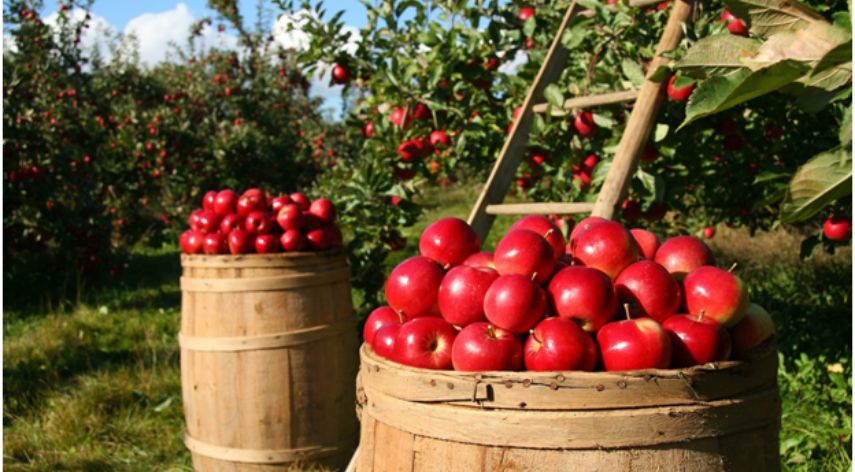7 Essential Practices For Organic Gardeners

Tending a thriving organic garden requires more than just planting and waiting – it demands conscientious maintenance to cultivate healthy soil and protect crops without resorting to synthetic chemicals. While passion alone fuels many an organic gardener, implementing a few key practices scientifically supports bountiful, pest-free harvests. From composting and crop rotation to natural pest control and watering judiciously, some basics yield major dividends with minimal effort. Let’s explore seven indispensable techniques for any organic horticulturist striving to work in harmony with nature.
Table of Contents
ToggleNourish The Soil With Compost
Soil forms the foundation for robust plant growth, so replenishing organic matter through composting delivers vital nutrients and tilth sustainably. Mixing in compost prior to planting introduces beneficial microbes while retaining moisture-holding capacity as temperatures rise. Worm bins and compost piles convert kitchen scraps into dark gold over time with diligent tending. Nature’s own fertilizer makes for healthy roots and higher yields.
Rotate Crops Strategically
Swapping positions of plant families year after year disrupts pest cycles dependent on consecutive mono-crops. Smart alternation also prevents soil nutrient depletion from certain heavy feeders. Careful planning strategizes succession for continuous harvests without exhausting microbes. Crop diversity likewise foils invasive weeds reliant on sameness. Overall immunity and balance prevail through prudent rotation.
Attract Beneficial Insects
Rather than assaulting pests reactively, organic gardening methods focus on inviting natural allies proactively. Native flowers, mixed borders and vegetative windbreaks shelter insectivorous bugs that curb aphids, caterpillars and more without poisons. Water features further beckon these pollinator protectors, bolstering populations ahead of seasonal invasions. Thoughtful habitat creation establishes the upper hand nonviolently.
Control Weeds Gently
While weeds compete for nutrients and water, handling them harshly harms vital soil biota too. Targeted pulling by hand or shallow cultivation between established plants disrupts root systems minimally. Natural mulches like shredded leaves or grass clippings likewise discourage sprouting while enriching the soil below as they decompose. Non-chemical extermination spares invertebrates integral to ecosystem balance.
Water Wisely And Deeply
Infrequent soakings develop deeper roots better able to withstand dry spells than frequent light sprinkles promoting shallow, tiller dependency. Evaluating moisture needs based on soil type and plant characteristics irrigates purposefully without waste. Drought-tolerant native varietals consequently require less H2O for successful harvests through thoughtful adaptation and foresight. Conservation stems from understanding vegetation requirements.
Practice Pollinator Gardening
Importance extends beyond aesthetics – pollinator gardens host floral havens essential for fruit and seed set across the landscape. Deliberately choosing nectar and pollen-rich blooms provides season-long nourishment to vital bee species. Mixed hedgerows, bare patches for ground nesters and larval plants supplement foraged fare. Proactive steps securing these delicate pollinators boost local biodiversity protection and farm productivity in perpetuity.
Expand Wisdom Through Observation
More than rules, organic growing pivots on intuitive awareness honed by attentive experimentation open to natural fluxes. Noting insect ID, plant responses, weather influences and subtle environmental interactions cultivates a green thumb sensitive to life’s balance. Continual learning informs adjustments benefitting garden and companions together over the long haul. Insights into nature’s intricate choreography sustain steady output naturally.
To Wrap Up
Time-tested organic practices demonstrate respect for soil, plants, and more-than-human helpers essential to fertile harvests. Mindful application of techniques like composting, rotation, habitat creation and conservationist watering help maximize yields through synergy rather than strife. Commitment to sustainability and ecosystem health rewards organic gardeners with prosperity and pleasure for seasons to come.
Mike Farrier possesses over 18 years of hands-on experience in software and web development, SEO, social media marketing, eCommerce, and digital marketing. He has been active in the online domain since 2019, serving as a seasoned SEO and digital marketing consultant.
Recommended For You
Spread the loveBathroom Wallpaper The Bathrooms- our home’s most fun-functional space often goes unnoticed while designing the house. However, this
Spread the loveWhen it comes to understanding temperature, Celsius and Fahrenheit are the two most commonly used scales around the world. The Celsius scale is primarily used in most countries, while the Fahrenheit scale is popular in the United States. If you’ve ever come across a temperature given in Celsius and wondered how it translates to Fahrenheit, you’re in the right place. This article will guide you through the process of converting 19 degrees Celsius to Fahrenheit, using simple formulas and steps. The Celsius Scale The Celsius scale, also known as the centigrade scale, is a metric system temperature scale based on the freezing and boiling points of water. On this scale, water freezes at 0 degrees Celsius and boils at 100 degrees Celsius under standard atmospheric conditions. This scale is widely used in scientific contexts and by most of the world for everyday temperature measurements. The Fahrenheit Scale The Fahrenheit scale, on the other hand, was developed by Daniel Gabriel Fahrenheit in the early 18th century. In this scale, the freezing point of water is 32 degrees Fahrenheit, and the boiling point is 212 degrees Fahrenheit. This scale is still commonly used in the United States for weather forecasts and some cooking measurements. The Formula for Conversion Converting temperatures between Celsius and Fahrenheit involves a specific formula. The formula to convert from Celsius to Fahrenheit is: [ \text{F} = \left( \text{C} \times \frac{9}{5} \right) + 32 ] Where: ( \text{F} ) represents the temperature in Fahrenheit ( \text{C} ) represents the temperature in Celsius By using this formula, you can easily convert any temperature from Celsius to Fahrenheit. Step-by-Step Conversion of 19 Degrees Celsius to Fahrenheit Let’s walk through the process of converting 19 degrees Celsius to Fahrenheit using the formula mentioned above. Step 1: Multiply by 9 First, take the temperature in Celsius (19 degrees) and multiply it by 9. [ 19 \times 9 = 171 ] Step 2: Divide by 5
Spread the loveIn the bustling streets of London, where competition is fierce and opportunities are abundant, businesses need every edge



